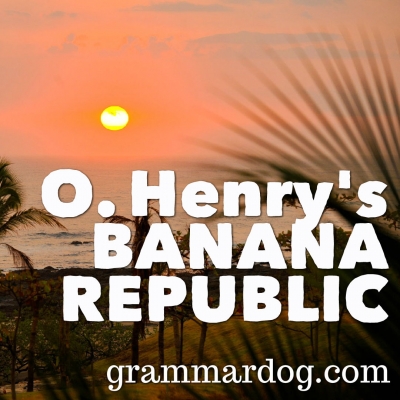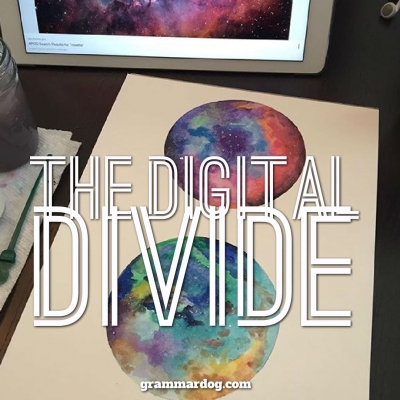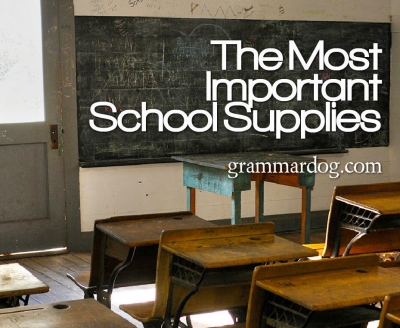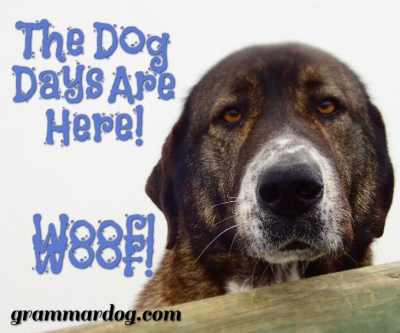We say “Happy” birthday, New Year, Thanksgiving, Easter and lots of other holidays. But Christmas is the only “Merry” greeting. The answer lies in the tradition of drinking alcohol at Christmas. “Merry” used to mean “tipsy” or “drunk” and the custom of getting drunk at Christmas goes back to the 4th century.
- 324 A.D. Early Christians celebrated Easter only. Pope Liberius added Christmas to the church calendar and set the date December 25. The idea was to attract more converts who liked to celebrate the Roman winter festival Saturnalia when houses were decorated with evergreens and everybody played games, gave gifts and partied.
- Middle Ages. Christmas was celebrated as a rowdy party with dancing, drinking and sexual revelry.
- The Reformation. In the 1500s Protestants banned the wild festival of Christmas, but Catholics partied on.
- The Restoration. In England the Puritans banned Christmas when they seized power in 1640. When the monarchy was restored in 1660, Christmas made a comeback. So did the drinking and revelry.
- 1844. Charles Dickens published A Christmas Carol, a novel where Ebenezer Scrooge says, “Merry Christmas!”
- Temperance Movement. In the late 1800s in England, women campaigned against drinking alcohol at Christmas. They proposed doing away with the tipsy “Merry” and replacing it with “Happy.” To this day the English and Irish say “Happy Christmas.”
How did O. Henry wind up in Honduras? O. Henry’s real name was William Sydney Porter. The author of beloved stories like The Gift of the Magi was also a criminal. Porter was arrested in 1896 for embezzling from the First National Bank of Austin, Texas. The day before his trial, Porter skipped town. He took a train to New Orleans and then a boat to Honduras. While holed up in a hotel, he wrote the novel Cabbages and Kings set in a fictitious Latin American country.
In the novel, Porter coins the expression banana republic that refers to countries in Latin America whose economies are dependent on a single resource such as coffee, sugar, silver, copper or bananas. Porter also invents the stereotype of the cigar-smoking former general who is the ruthless dictator at the helm of an unstable, corrupt government in Latin America.
After six months in the tropics, Porter returned to Austin when word reached him that his wife was dying. He was tried and convicted of the federal crime of embezzlement and sentenced to five years in prison. Porter spent his prison years writing short stories under the pseudonym O. Henry. Getting the stories published from prison was tricky. He mailed the manuscripts to a friend in New Orleans who would then send them to various magazines.
Porter was released from prison after three years for good behavior. He moved to New York City where he wrote 381 short stories and enjoyed considerable fame. A heavy drinker, Porter died in New York at the age of 47 and is buried in Asheville, North Carolina where he owned a summer home.
A digital divide exits in the world at large. Even if an individual has a smart phone, the cost of connecting to the internet is not affordable. According to Wired magazine, 4.9 billion people are not on the internet because it costs too much. Only 10-15% live in remote areas the internet can’t reach. All that is about to change. Several companies plan to offer low-cost or free wi-fi for planet Earth.
Google. Project Loon is Google’s plan to test thousands of helium-filled balloons that measure 49 feet in diameter. From eleven miles high, the balloons will beam wi-fi all over the planet. Project Loon has already run a small test in New Zealand. A much larger test will be conducted in Indonesia in the next few months.
SpaceX. Elon Musk’s plan to provide world-wide wi-fi involves 4,000 small satellites orbiting the earth. SpaceX plans to launch the satellites in the next four years. Unlike the other ventures, Musk’s internet service will be low-cost, not free. His plan is to use the revenue from worldwide internet to fund SpaceX’s plan to build a city on Mars. Musk boldly predicts that satellites will replace fiber optic cables in the next 10-12 years.
Facebook. Free Basics is a partnership between Facebook and Google. By late 2016 Free Basics plans to use ground stations to send radio signals to giant solar-powered drones high in the sky. The drones then send laser signals to more drones nearby that pass the signals to transponders that convert the signals to wi-fi or 4 G networks. These drones are not the kind you buy at Walmart. Called an Aquila, each giant drone is shaped like a boomerang and has the wingspan of a Boeing 737. Imagine a drone as big as a passenger jet surrounded by swarms of smaller drones – 10 thousand drones altogether – that deliver wi-fi to the world.
Free worldwide wi-fi sounds great to Americans, but Free Basics has met with strong resistance to the plan. Both India and Egypt suspended Free Basics service after trial tests in those countries. The majority of people in the world live in countries where state-owned media agencies control internet access. Countries that block and jam websites include China, North Korea, Saudi Arabia, Iran, Ethiopia, Azerbaijan, Vietnam, Myanmar, Eritrea and Cuba. The least censored countries are Sweden and Switzerland. (Source: Freedom House)
Facebook’s Mark Zuckerberg has been traveling the world trying to convince repressive governments that wi-fi access will become as necessary as electricity. Zuckerberg even spoke in Chinese in Beijing, saying “Access to the internet is a fundamental challenge of our time.” Convincing the world’s repressive governments that free internet is in their best interest is an uphill battle. Zuckerberg’s biggest selling point is that driverless cars and smart homes will require 24-hour internet connection.
Google, SpaceX and Facebook are forging ahead no matter what. We can expect one of these plans – balloons, satellites or giant drones – to change our lives very soon.
Breakfast and sleep are the most important school supplies.
Sleep is free and breakfast is the cheapest meal of the day. Adequate sleep and a carbohydrate and protein-packed breakfast affect the brain, behavior, and learning success. The lack of sleep and skipping breakfast can undermine a student’s success. Sleep deprivation is easy to fix. Making sure a child eats breakfast is challenging, but not impossible to remedy.
SLEEP
Preschoolers aged 3-5 years old need 11-13 hours of sleep each night. Children aged 6-13 years old need 9-11 hours of sleep. Teens need 8-10 hours. Here’s how sleep works . . .
1. NREM. Non-rapid eye movement composes 75% of sleep. As we fall asleep breathing and heart rate are regular. Then body temperature drops. Blood pressure drops. Breathing slows. Muscles relax. Blood supply to muscles increases. Tissue growth and repair occurs. Energy is restored. In children and teens growth hormones are released.
2. REM. Rapid eye movement composes 25% of sleep. REM occurs 90 minutes after falling asleep and every 90 minutes through the night, lasting slightly longer toward the end of sleep. After NREM relaxes the physical body, it’s the brain’s turn to recharge. During REM the brain is active and dreams occur. The brain “relives” what has occurred during the day. This is the activity crucial to acquiring and remembering knowledge because the brain re-visits the day’s learning. New information is reinforced and “filed” for later retrieval and connections with future learning.
Sleep provides us with a strong immune system. Humans spend one third of their lives sleeping. That time is crucial to physical health, emotional well-being and optimal brain function.
BREAKFAST
When we first wake up, our bodies are “out of gas.” After 8-10 hours of sleep children and teens need refueling. The body has used up nutrients in the night repairing tissue and restoring energy. Muscles need carbohydrates and the brain needs protein. Hormones have been racing through the body. One hormone in particular -- cortisol, a stress hormone – peaks just as we wake up. We need food to lower the cortisol level which will remain high until we eat something. An elevated blood cortisol level results in the breakdown of muscle protein, storage of fat, and increased appetite. Blood glucose levels are also low upon waking. If the body’s carbohydrate stores are not replenished after sleep, low blood glucose levels adversely affect concentration and mental performance.
A 400 calorie breakfast loaded with carbohydrates and protein (easy on the sugar) will give the body and brain the boost they crave. The traditional American breakfast is no longer bacon, eggs and toast, pancakes, hot cereal or other labor intensive offerings. As long as you can get children and teens to eat something with carbs and protein, anything is okay. Breakfast can be solid or liquid or leftovers for the non-traditional eater. Examples:
Carbohydrates: cereal, toast, whole grain muffin, banana or other fruit
Protein: yogurt, milk, protein drink, eggs, peanut butter
A slice of warmed-up left-over pizza, a Jimmy Dean breakfast sandwich, an Egg McMuffin, a breakfast burrito, chocolate Pediasure or Boost – whatever you can get kids to eat that contains both carbs and protein counts as morning fuel.
Breakfast also optimizes cognitive function (learning, thinking, creating and problem-solving) during the day. School performance is not just the grades on a child’s report card. Success in school involves mastering social skills, following classroom management rules, and learning intellectual and emotional discipline. Adequate sleep and breakfast establish life-long habits that will boost performance in advanced education, relationships and jobs.
Make sleep and breakfast priorities. They are two of the most important life skills that parents can teach their children.
Welcome to Dies Caniculares! Ancient civilizations observed that temperatures were hottest in mid-July through mid-August when Sirius, the “Dog Star” rises next to the sun. Sirius means “glowing” in Greek. It is the head of the dog in the constellation Canis Major – the Big Dog. The star glows blue-white on the horizon near the sun at dawn. Sirius is the brightest star in the night sky because it is closer to earth – only 8.6 light years away – not larger in energy or light output. The only objects brighter than Sirius are the sun, moon, Venus, Jupiter, Mars, and Mercury.
Ancient Egyptians who worshipped the sun believed Sirius was a mysterious relative of the sun. They called Sirius the “Nile Star” because it signaled the annual flooding of the land. The Egyptians based their calendar on the rising of Sirius and considered it the most important star of all and a symbol of fertility. The Dog Days were a time of feast and celebration. The Egyptians built the pyramids in alignment with Sirius. Sirius shows up in Freemasonry as the “Blazing Star” prominent in Masonic art due to its association with Egyptian pyramids. Sirius is the star in the Order of the Eastern Star. Other civilizations that marked the Dog Days with feasts and celebration include the ancient Chinese and Japanese who called Sirius the “Wolf Star” and American Indians who called it “Coyote Star.”
The Dog Days were dreaded by ancient Greeks and Romans. They thought the period between July 24th and August 24th brought forth evil. During the hot, dry Dog Days it was believed that wine turned sour, the seas boiled, dogs went mad, people contracted disease and fever and were susceptible to hysterics and frenzies. The Romans tried to bargain with the gods for a cooler July and August by sacrificing a red dog in April. Today Europeans do as the Roman aristocracy did – they go on holiday in August.
Superstitions die hard. Some people still think that hot weather causes violence during the Dog Days. Criminologists have studied seasonal crime in the U.S. for more than a hundred years and have yet to find any correlation between hot weather and crime. A study that analyzed crime in 2007-2009 in New York City found that the most crimes occurred in September, followed by August, October, July, and December. More than a hundred studies of crime statistics confirm that it’s not the heat, it’s the opportunity for social interaction that drives the crime rate. When teenagers are not in school, the crime rate for personal property crime (burglary, larceny, auto theft) goes up nationwide. During warm weather people leave bicycles in the front yard or leave the garage door open. They may leave their car idling to keep the air-conditioning on, or windows up to cool off a room. Does the rising mercury drive people mad or make them violent? Nationwide the month with the highest homicide rate is December.
The National Academy of Sciences issued a study in July 2013 that did conclude there is one aspect of human behavior that is recommended during the Dog Days: Summer is the best time to conceive a child. May is the worst month to conceive because the baby will be born in the winter. Babies born in winter have lower birth rates, weaker immune systems, poorer vision and hearing, slower cognitive development than babies born in spring and summer.
It seems the ancient Egyptians had it right when they recognized the Dog Days as a time to celebrate fertility!






